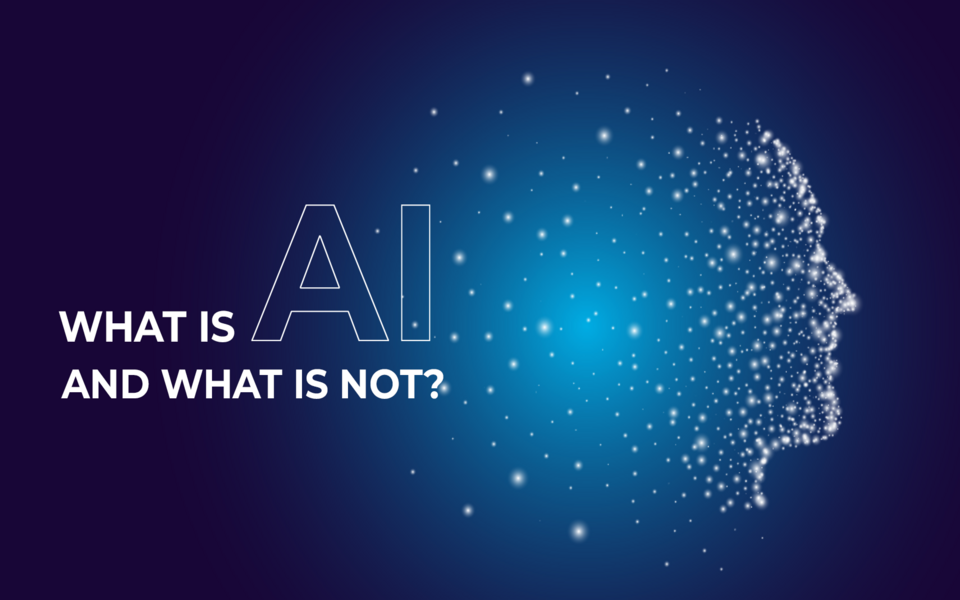
What AI Is Not
Here's an analysis of what artificial intelligence (AI) is not, based on the provided sources and my own knowledge:
AI is often misunderstood, leading to exaggerated expectations and fears. It's crucial to understand its limitations to use it responsibly and effectively.
1. AI is Not Human Intelligence
2. AI is Not Infallible
AI systems do not possess consciousness, emotions, or self-awareness, which are fundamental aspects of human intelligence [2]. While AI can generate human-like text and process vast amounts of data, it lacks genuine understanding and subjective experiences [2]. AI models like ChatGPT can predict the next word in a sentence, creating coherent paragraphs, but this is not equivalent to human intelligence [1]. Humans can easily multitask and transfer knowledge from one area to another, which machines cannot do [1].
3. AI is Not Autonomous
AI is susceptible to errors and limitations [2]. AI systems can make mistakes, such as misidentifying objects in images or generating false information [2] [3]. This highlights the need for human oversight and continuous monitoring [2]. AI systems can also be manipulated or deceived, underscoring the need for robust security measures [2].
4. AI is Not Bias-Free
AI does not operate in isolation; human intervention is essential for training, monitoring, and fine-tuning algorithms [2]. Even in autonomous vehicles, human oversight is still required to handle complex and unpredictable situations [2].
5. AI is Not a Replacement for Human Creativity
AI can inherit biases present in the training data [2]. For example, facial recognition systems have been criticized for exhibiting racial and gender biases [2]. Addressing bias in AI algorithms and developing unbiased datasets is crucial for creating fair and equitable systems [2].
6. AI is Not Predictive of Future Outcomes
AI is a tool for augmenting human capabilities, not a substitute for creativity [2]. While AI can generate art, music, and code, it lacks the intuition, emotions, and genuine creativity inherent in human thought processes [2].
7. AI is Not Invincible to Ethical Concerns
AI cannot accurately predict the future due to the complexity of real-world events and inherent uncertainties [2]. For example, stock market predictions by AI models often falter in the face of unexpected global events [2].
8. AI is Not a Substitute for Human Connection
AI introduces ethical considerations, including privacy, security, and accountability [2]. The use of AI in surveillance systems raises privacy concerns [2]. Ethical guidelines and responsible practices are essential in the AI industry [2]. AI cannot replace human judgment, intuition, and ethical reasoning, especially in decisions with ethical or moral implications [2].
9. AI is Not Immune to Technological Limitations
AI-powered communication tools cannot fully replace face-to-face human connection [2]. Non-verbal cues, emotional nuances, and interpersonal dynamics are essential aspects of human communication that AI systems cannot replicate authentically [2].
10. AI is Not Universally Accessible
Current AI algorithms may struggle with context switching, long-term memory, or understanding abstract concepts [2]. These limitations constrain the scope of AI applications and highlight the ongoing need for research and innovation [2].
11. AI is Not Automation
Access to AI tools, expertise, and resources is often limited by factors such as cost, infrastructure, and technical knowledge [2]. This digital divide raises concerns about equitable access to the benefits of AI [2].
AI doesn’t possess organic, malicious intent of its own [4]. The danger remains with the humans behind these applications, not with the technology itself [4].
12. AI is Not the End of Humanity
The most common misconception is that AI is synonymous with automation [4]. While AI leverages aspects of automation, it goes beyond simple execution of tasks by learning to make decisions on its own, mimicking human behavior [4].
Some AI tools are not produced with real-time information [3].
14. AI is Not Always Up-to-Date
AI systems can perpetuate biases because of the data they are trained on [3].
13. AI is Not a Guarantee of Bias-Free Results
16. AI is Not a Replacement for Human Interaction
AI cannot make ethical or moral judgments [6]. It lacks the ability to consider the broader social, cultural, and ethical implications of its decisions [6].
15. AI is Not a Substitute for Human Judgment
17. AI is Not a Source of Common Sense
AI lacks emotional intelligence and empathy, which are essential for understanding human emotions and behavior [6]. This means that AI cannot replace human interaction in fields such as counseling, therapy, or social work [6].
18. AI is Not a Source of Contextual Understanding
AI lacks the common sense and intuition that humans possess [6]. AI can make mistakes, particularly when dealing with unusual situations that require human judgment and experience [6].
20. AI is Not a Solution to All Problems
While AI may create new jobs, it also has the potential to displace workers in certain roles [5].
19. AI is Not a Guarantee of Job Security
AI lacks the ability to understand the context of situations, particularly when dealing with ambiguous or complex situations [6]. AI can misinterpret data, leading to incorrect decisions [6].
In summary, AI is a powerful tool with significant potential, but it is not a replacement for human intelligence, creativity, judgment, or ethical reasoning. Understanding its limitations is crucial for responsible development and deployment.
It's important to consider whether AI is the best tool for solving a problem [1].
Authoritative Sources
- What is artificial intelligence—and what is it not? [World Economic Forum]↩
- Demystifying AI: What AI Is Not [LinkedIn]↩
- Glossary of artificial intelligence terms for educators [Western Iowa Tech Community College]↩
- Understanding What Artificial Intelligence Is and What It’s Not [Forbes]↩
- AI: The Good, The Bad, and The (Potentially) Scary [Virginia Tech]↩
- What AI can and can’t do [ShareVault]↩

Sign up for free to save this answer and access it later
Sign up →